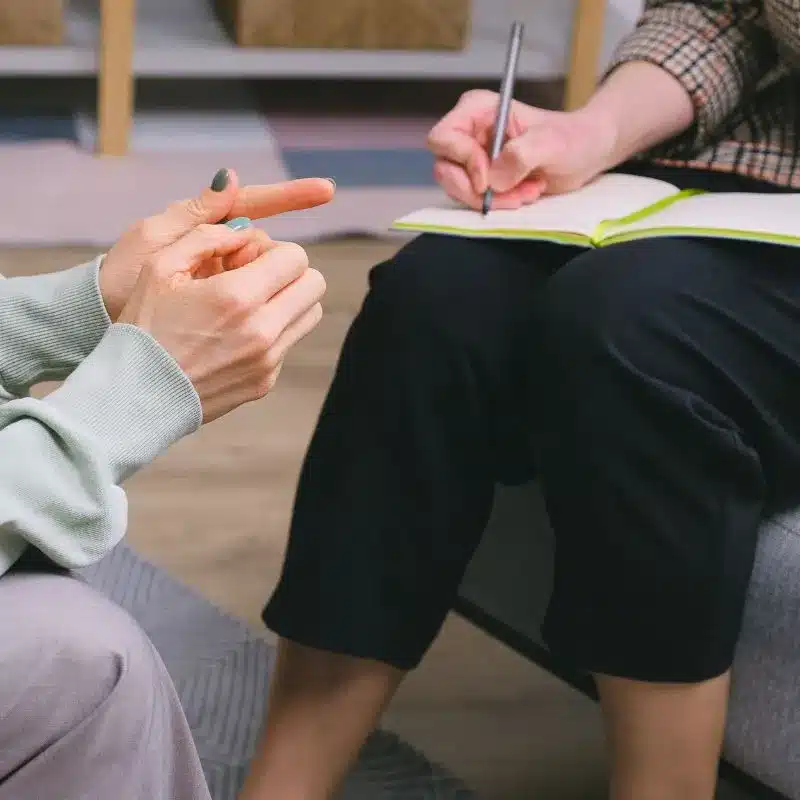Self-care has become a buzzword in recent years and it’s a great way to relieve stress but what happens when self care isn’t enough? While self care activities certainly have their benefits, they are not always enough to address the root causes of our stress and anxiety.
In fact, sometimes self-care can even become a form of avoidance, allowing us to temporarily escape our problems without actually solving them. So what can we do when self-care alone isn’t enough?
In this article, we’ll explore some deeper, more meaningful ways to take care of ourselves, from therapy and meditation to community involvement and activism. Because sometimes, the most effective form of self-care is the one that challenges us to confront our issues head-on, rather than simply escaping from them.
The Importance of Self-Care
While we are going to talk through different strategies when self-care isn’t enough, we still want to stress the importance of self-care.
Self-care is an essential aspect of maintaining good mental health. It refers to any activity that we do deliberately to take care of our physical, mental, and emotional well-being. This can include anything from getting enough sleep and eating healthy food to taking time for ourselves to relax and recharge.
Self-care is important because it helps us to manage stress and reduce the risk of burnout. It also helps us to build resilience, which is our ability to bounce back from difficult situations. When we take care of ourselves, we are better able to cope with the challenges that life throws our way.
But sometimes, self care is not enough to really help us heal.
The Limitations of Self Care
While self-care is important, it has its limitations. Self-care alone cannot always address the root causes of our stress and anxiety. For example, if we are experiencing problems in our relationships or at work, taking a bubble bath is not going to solve those problems.
In some cases, self-care can even become a form of avoidance. We may use self-care activities as a way to escape from our problems temporarily, without actually addressing the underlying issues. This can lead to a cycle of temporary relief followed by a return of stress and anxiety.
And when we put a temporary bandaid on the problem and don’t truly address the issue, it may make our mental health worse. Self care is great for many but when we need to deep dive into healing, we may need to seek new forms of help. So what should you do when self care isn’t enough?
The first step is self-reflection.
Understanding the Root Causes of Stress and Burnout
To truly address our stress and anxiety, we need to understand the root causes. This may involve some introspection and self-reflection to identify the sources of our stress. It may also involve seeking the help of a mental health professional.
Common sources of stress and burnout include work-related issues, relationship problems, financial difficulties, and health problems. By understanding the root causes of our stress, we can begin to take steps to address them.
If you don’t know where to start, take out a journal. List out things that make you worried – this is a great way to begin to identify your stress. Once you identify these stressors, you can build a plan to address them. If you’d like someone to build a plan for you, your first step in activities beyond simple self care may be counseling and therapy.
The Benefits of Therapy and Counseling
Therapy and counseling are powerful tools for addressing the root causes of our stress and anxiety. A mental health professional can help us to identify the sources of our stress and develop strategies for managing them.
According to Talk Therapy, counseling can help us:
- Become more self-aware
- Help with conflict resolution
- Build stronger relationships
- Challenge negative thought patterns
Additionally, the great thing about seeking therapy these days is that there are tons of options! You can choose something like texting, talking over zoom, or connecting over the phone. From there, you can also seek different types of therapy.
These types of therapy and counseling, include cognitive-behavioral therapy, psychodynamic therapy, and mindfulness-based therapy. Each type of therapy has its own approach and techniques, so it’s important to find one that resonates with us.
Different Types of Therapy and Counseling
Cognitive-behavioral therapy (CBT) is a type of therapy that focuses on changing the way we think and behave. It is based on the idea that our thoughts, feelings, and behaviors are interconnected and that changing one can help to change the others.
Psychodynamic therapy is a type of therapy that focuses on exploring our unconscious thoughts and feelings. It is based on the idea that our past experiences can shape our present behaviors and emotions.
Mindfulness-based therapy is a type of therapy that focuses on developing mindfulness skills, such as meditation and breathing exercises. It can help us to become more aware of our thoughts and feelings and learn to respond to them in a more constructive way.
Finding the Right Therapist or Counselor
Finding the right therapist or counselor is essential for getting the most out of therapy. It’s important to find someone who we feel comfortable talking to and who has experience working with the issues that we are dealing with.
We can start by asking for recommendations from friends and family members, or by searching online for therapists in our area. Many therapists offer a free consultation, which can be a good way to determine if they are the right fit for us.
This may be one of the most difficult parts of seeking help. When finding a therapist or counselor, make sure you are clear on what type of person you want to connect with. You may have to connect with a few before finding the perfect match.
Don’t let this discourage you – there’s someone out there who can help! You will find them. And if you need help asap but you’re in the process of finding the right resource, you can try alternate forms of activities in the meantime.
Support groups are another great way to ease yourself into therapy – you can join support groups and just listen until you’re comfortable sharing.
Mindfulness and Meditation as Complements to Therapy
In addition to therapy, mindfulness, and meditation can be powerful tools for managing stress and anxiety. Mindfulness involves being present at the moment and paying attention to our thoughts and feelings without judgment.
Meditation is a practice that involves focusing our attention on a particular object or sound, such as our breath or a mantra. It can help us to calm our minds and reduce stress and anxiety.
If you’re looking for more information on mindfulness, we have a few resources here:
Final Thoughts
Self-care is an essential aspect of maintaining good mental health, but it has its limitations. To truly address the root causes of our stress and anxiety, we may need to seek the help of a mental health professional. We hope that you enjoyed this guide of what to do when self care isn’t enough.
Therapy, mindfulness, and other self-care practices can be powerful tools for managing stress and anxiety, but they are most effective when used in combination with one another. By taking a holistic approach to our mental health, we can cultivate resilience and build the skills we need to thrive.


3 comments
This is an interesting point of view because for me I practice therapy as self care. I use it as an extension of caring for myself and exploring my mind and learning why I feel the way I do.
I was just thinking about this last week, sometimes flowers and bubbles, just aren’t enough. Thank you for writing an article that resonates with how I feel.
This is such a well timed post for me Courtney. I believe wholeheartedly in self-care but it does have limitations. It’s very sensible to keep that in mind well you are feeling overwhelmed.